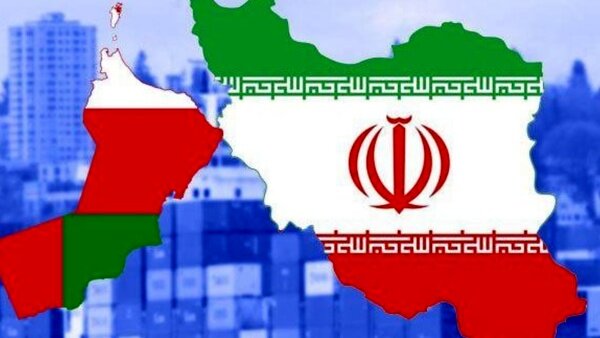Strengthened political ties, now a surging trade between Iran, Oman

According to the data released by the Islamic Republic of Iran Customs Administration (IRICA), the value of trade between Iran and Oman has increased to $870 million during the first seven months of this year from $557 million in the same period of time in the past year.
While the number of Iranian companies registered in Oman was just 263 in 2014 (when President Hassan Rouhani visited Muscat), the figure reached 1,163 by the end of 2018.
Iranian president’s trip to Oman led to the all-out expansion of economic ties between the two countries.
Also, despite the U.S. reimposition of sanctions against the Islamic Republic, Oman is getting closer to Iran both politically and economically. There is also the same approach adopted by Iran, as Iranian companies now prefer to conduct trade with Oman rather than the United Arab Emirates (UAE), given that the UAE is highly complying with the sanctions.
Iran is somehow replacing some of its previous strategic trade partners such as UAE with Oman, considering the Sultanate as an economic-trade hub.
During the current year there have been many meetings and negotiations between trade and economic officials from the state-run and private sectors of the two sides with the aim of strengthening and expanding bilateral trade ties.
In a trip to Muscat in mid-July, Iranian Industry, Mining and Trade Minister Reza Rahmani met a number of Omani senior officials including Minister of Transport and Communications Ahmed Mohammed Salem Al-Futaisi and Minister of Commerce and Industry Ali bin Masoud al Sunaid and emphasized the need for strengthening transport and infrastructure cooperation between the two countries in order to provide basis for expansion of trade ties.
During a meeting with Rahmani, Al-Futaisi welcomed economic cooperation with Iran in all areas, saying that Oman's policy is to develop relations with its neighbors, especially the Islamic Republic of Iran, and it welcomes any strategy to expand all-out relations.
Sunaiday, for his turn, expressed his country’s eagerness for boosting trade with Iran, saying, “The Islamic Republic of Iran has significant capabilities and capacities that the two sides can tap in line with the national interests of the two countries."
Developing sea transport between the two sides, facilitating visa issuance for Iranian and Omani traders, rising number of Iranian companies in Oman and also more competitive prices of Iranian products in the Omani market compared to the past are some of the major reasons behind expanded economic cooperation between the two countries.
More direct shipping lines between Iran, Oman
In last December, Iran and Oman launched their fourth direct shipping route to connect Iran’s port city of Jask to the Omani port of Al Suwaiq.
The first shipping route between the two countries was put into operation in March 2015 between Iran’s Bandar Abbas and Oman’s Sohar.
In December 2016, Iran and Oman inaugurated direct shipping routes from two Omani ports to the Iranian port of Shahid Bahonar.
Later in December 2017, the two countries launched another shipping line which connects Iran’s port city of Khorramshahr to the Omani port of Sohar.
Oman offering incentives to Iranian traders
In line with facilitating trade between the two countries, Oman is offering some incentives to the Iranian traders such as tax exemptions.
Also, through providing necessary infrastructure such as facilitation of banking regulations, the Sultanate has created proper opportunities for presence of Iranian investors in that country.
Four reasons to develop trade with Oman
Mohsen Zarrabi, the chairman of Iran-Oman Joint Chamber of Commerce, has mentioned four major reasons for Iran to develop its trade ties with Oman, which come as follows.
The first one is that Oman with a population of 4.6 million people imports over $28 billion of commodities, of which the share of Iran’s export to that country is just $728 million, a figure that definitely can be increased given the proper condition recently created.
The second reason is that while there are many good markets for the Iranian products in the region, due to some political problems with some countries Iran cannot access their markets. So, Oman can be a good base for re-export of Iranian products to those destinations.
The third one is Oman’s old and deep relations with the African countries, which again can play the role of re-exporting Iranian commodities to those markets.
And the last one is that African countries do not make their purchase in cash and as Iranian banks cannot receive LC due to the sanctions, so Iran cannot practically compete with the Chinese and Turk rivals in those markets; but re-export of Iranian products from Oman can create a larger African market for Iran.
Big companies rather than SMEs
While the ground is laid for the activity of Iranian companies in Oman, their performance is not ideal, according to Abbas Abdolkhani, Iran’s commercial attaché in Muscat.
He said it is because the Iranian companies are mainly small and medium-sized enterprises (SMEs) that cannot compete with the big foreign companies.
It is while existence of many cultural and religious commonalities between the two countries is a good potential for the expansion of trade ties, the official noted.
